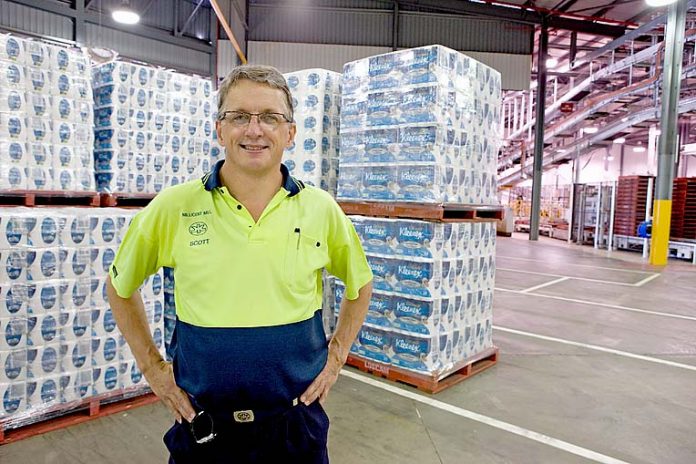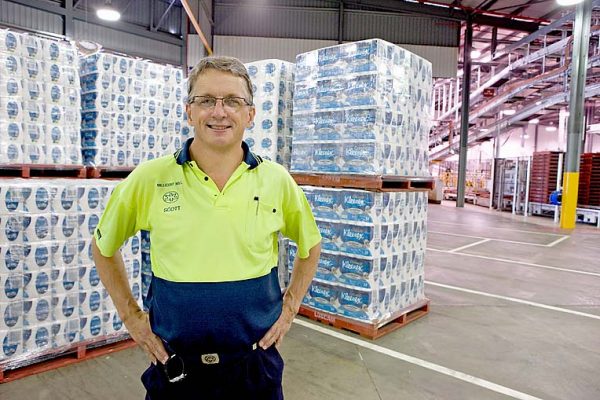

THE Kimberly-Clark Australia Millicent Mill looks set to remain operational at least until the end of this calendar year, but management has not confirmed its long-term future, according to a leaked internal memo.
Issued recently by mill manager Scott Whicker to company employees, the document offers a glimpse of the short-term plans for the 58-year-old site by its American owners.
The Kimberly-Clark Corporation of the USA announced in January it was consolidating its worldwide operations and would shed 5500 employees and close 10 plants.
“At this stage, we have been told Millicent Mill operations are part of the business plans for 2018,” Mr Whicker said in a statement obtained by The Border Watch.
“Beyond that is yet to be communicated.”
Mr Whicker used the internal memo to urge the Millicent Mill’s employees to accept his company’s enterprise agreement offer.
“As leaders here at the Millicent Mill, we are very conscious of the spotlight on each mill’s performance across the globe,” he said.
“I want us all to be in the position to demonstrate the Millicent Mill has a business model that secures our long-term future.”
“We have good plans and objectives to enable the Millicent Mill to evolve, be successful and provide good conditions for all employees.
“We believe the proposed enterprise agreement you are being asked to vote on gives us the best chance of getting commitments beyond 2018.”
Mr Whicker said it was unlikely another company would buy and operate the Millicent Mill if a decision to close was made.
“The Millicent Mill is situated in a difficult location logistically for anyone considering purchasing the operations,” he said.
“The Kimberly-Clark Corporation has invested significant amounts of capital over the past 15 years to make the business and the site a success.
“I believe it would be highly unlikely that a competitor would be willing to spend that level of investment in this location when the same money in a capital city would provide a far better return on investment and lower operating costs.”
The mill manager said he was aware that some KCA employees found it difficult to accept the new enterprise agreement would not provide the same conditions for newcomers.
However, Mr Whicker said the proposed enterprise agreement would protect the terms and conditions of existing employees and achieve a sustainable platform for the Millicent Mill.
“It gives us almost 2.5 years of certainty and puts behind us this long period of negotiation,” he said.
It is understood the company is offering a 4pc wage rise and a $2000 cash bonus as part of the new agreement.
Mr Whicker was asked about his memo by The Border Watch, but declined to comment.
The company-organised vote on the enterprise agreement is expected to take place next week.
Meanwhile, the outcome of a postal ballot on protected industrial action should be known later this month
The Construction Forestry Mining and Energy Union is opposed to the enterprise agreement offer due to its conditions and the creation of a two-tier structure for newcomers.
The union obtained the blessing of the Fair Work Commission last month to undertake the postal ballot of its 260 members due to a breakdown in enterprise agreement negotiations.
This is being conducted by the Australian Electoral Commission and closes on March 14.
CFMEU Pulp and Papermakers Division Federal Secretary Alex Millar said his union and kindred unions across the globe were urging the Kimberly-Clark Corporation to announce which of its mills would close.
According to Mr Millar, his discussions with his North American colleagues led him to believe that one of the three mills in the USA already slated for closure was highly profitable and that workers had cooperated with management.
Mr Millar said such uncertainty about mill closures created stress for families.
“It is outrageous the company would allow its workers to be left hanging,” he said.







